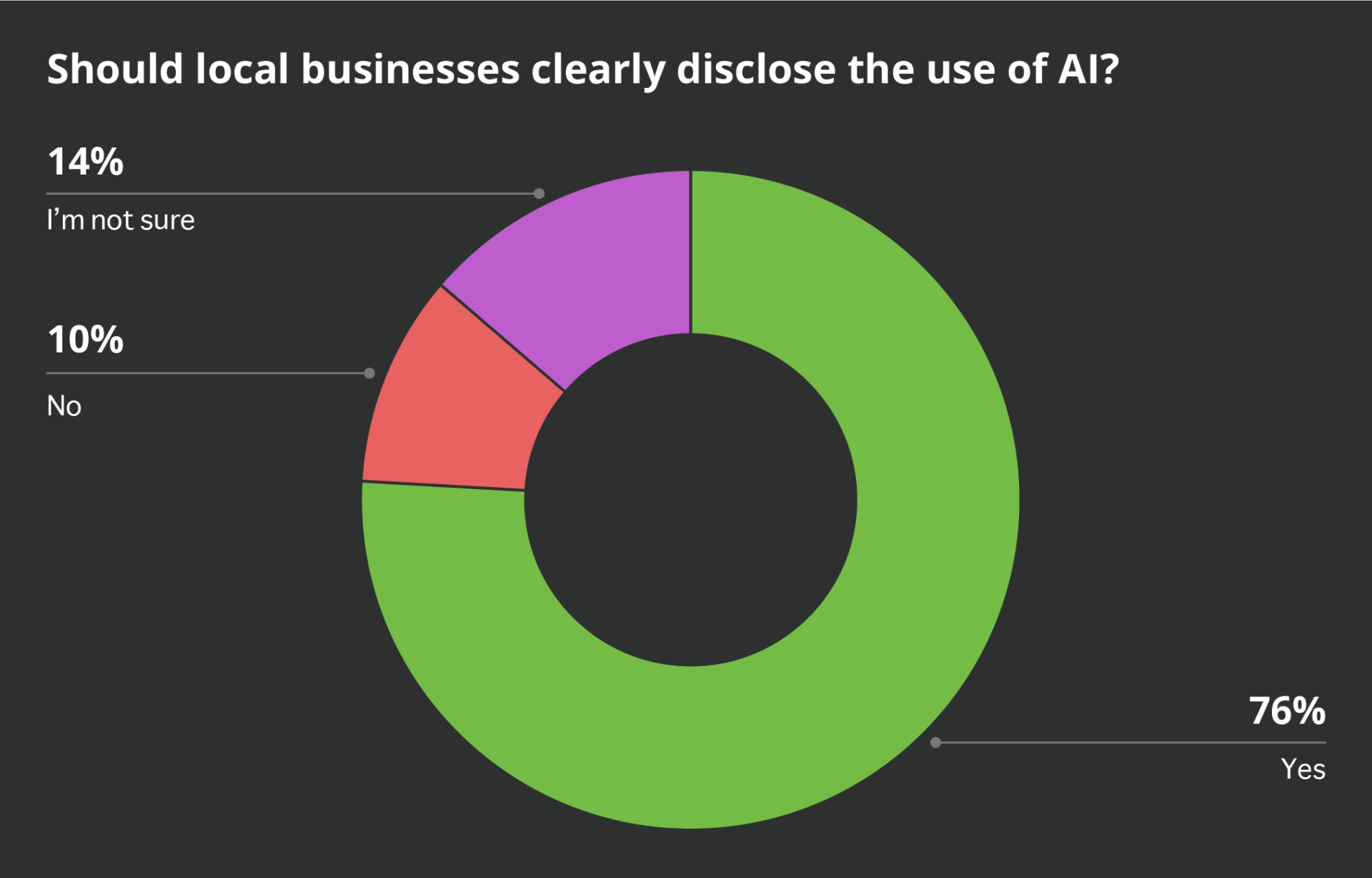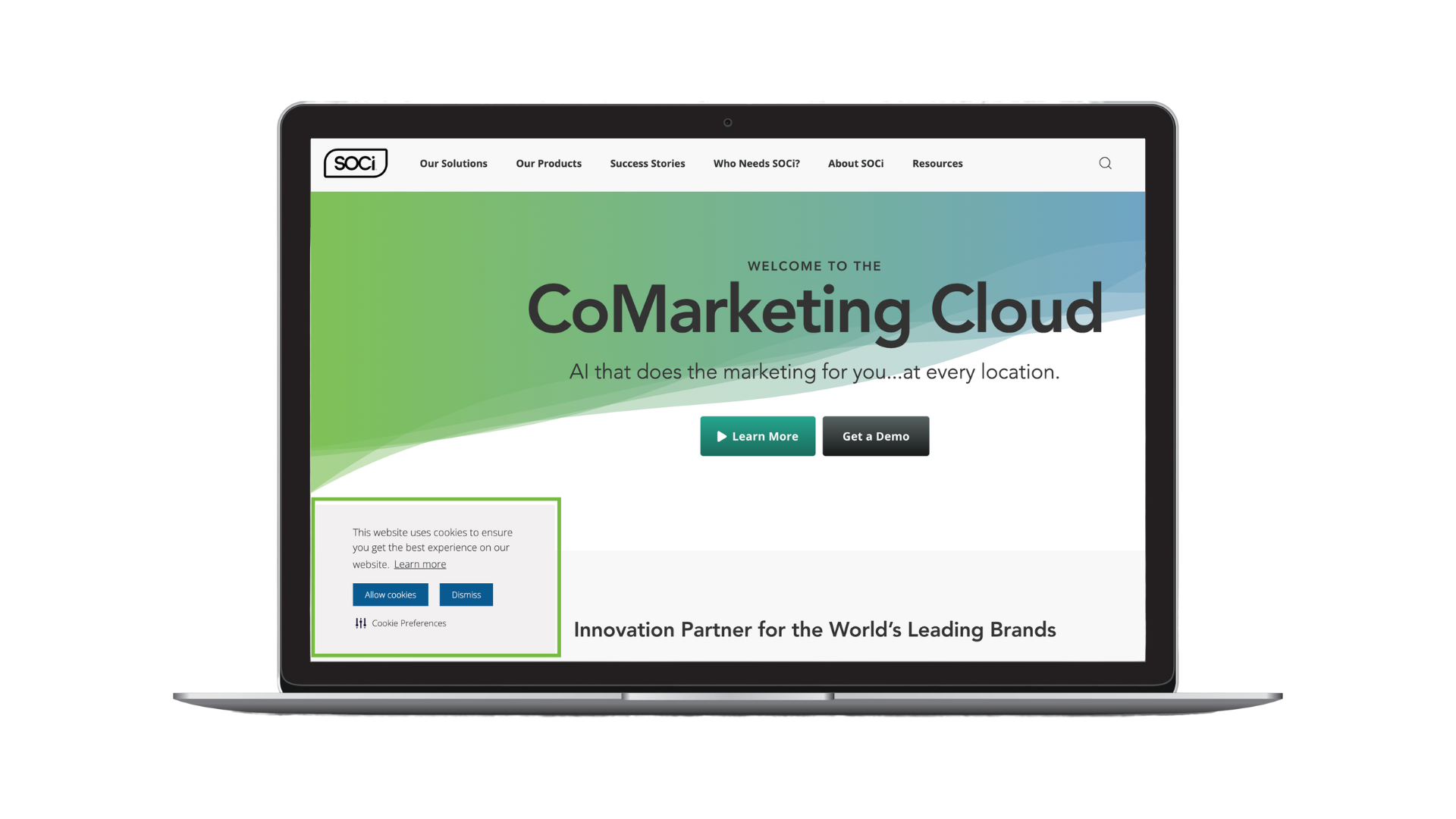How to Navigate Privacy and AI With a Customer-Centric Approach
Table of Contents
In the dynamic world of business, which is fueled by data and driven by artificial intelligence (AI), the melding of personalization and privacy has evolved into a fundamental pillar of brand trustworthiness and credibility. AI and privacy go hand in hand when shaping brand reputation.
Today, marketers and chief information officers are at a crossroads between AI’s potential and customer data protection. One question looms large: How do we maintain cutting-edge personalization without forfeiting the trust and confidence of our clients?
This article offers a customer-centric roadmap to navigate privacy in AI, ensuring your brand’s success in the AI era.
The Crucial Balancing Act: Privacy and AI
Today’s consumers are becoming more selective, requiring privacy measures to match the sophistication of AI technologies that often rely on personal data. As AI advances, the demand for data increases, necessitating a delicate balance between data utilization and privacy preservation.
This balancing act is not just about meeting GDPR and CCPA regulations; it’s about developing a company’s ethical position around AI privacy and earning customers’ trust.
Understanding Privacy in AI
Privacy in AI refers to the strategies and measures crafted to safeguard the personal and sensitive data that powers AI technologies.
This encompasses:
- Data governance or policies for how data is gathered, stored, and processed
- Secure processing
- Ensuring that AI systems do not misuse or compromise such data
A single misstep, whether a data breach or a perceived intrusion, impacts immediate sales and long-term brand loyalty. Trust is the cornerstone of customer relationships, especially in the age of AI, and it is crucial for operational success.
How AI Collects and Leverages Data
AI collects customer data through various mechanisms, including tracking online behavior, analyzing past purchases, monitoring social media interactions, and utilizing sensors or Internet of Things (IoT) devices.
By employing machine learning algorithms, AI can sift through vast amounts of data to identify behavioral patterns, preferences, and trends.
This data is then leveraged to personalize user experiences, enhance service offerings, and predict future consumer needs with remarkable accuracy.
The Customer-Centric Paradigm Shift With AI
According to our recent Consumer Behavior Index (CBI), which surveyed more than 1,000 consumers about their preferences and practices when interacting with local businesses, we found that:
- Sixty-one percent of consumers say they’re well-informed about AI developments.
- Forty-one percent are “OK with businesses using AI to inform and communicate as long as it improves my experience as a customer.”
- The 35-44 age group reported highest at 54%.
However, what’s most important to consumers is transparency. More than three-quarters of consumers believe that businesses should clearly disclose the use of AI in customer service, advertising, and marketing.
These consumers’ concerns necessitate a shift in perspective around privacy in AI. Merely advancing AI for innovation’s sake, without considering privacy is no longer an option.
The primary focus should always center around the customer, with privacy and transparency considerations integrated into all aspects of your marketing strategies, particularly around the use of AI.
You can download our CBI research report for more information on consumers’ online preferences and daily practices.
Six Customer-Centric Strategies to Ensure Privacy With AI Technologies
Safeguarding privacy isn’t only a legal and ethical obligation but also a competitive edge. As noted, brands that demonstrate a reliable and proactive approach to privacy around their AI usage gain more customer trust.
In this section, we will examine six effective privacy measures that prioritize customers’ personal data in AI tech and will help boost their confidence in your brand.
1. Educate and Guide Leaders and Teams on AI and Data Privacy
To navigate the intersection of AI and data privacy effectively, leaders and teams must understand what privacy in the world of AI looks like and build a strategic blueprint prioritizing customer privacy.
This requires a thorough educational effort to ensure all staff, from executives to technical teams, grasp the importance of privacy and the nuances of AI.
Companies can foster a culture of responsibility and awareness by establishing clear guidelines and best practices, coupled with ongoing training. It’s also important to establish who is responsible for ensuring privacy measures are in place and executed correctly.
2. Navigate Regulatory Compliance
Educating your team on AI and data privacy includes understanding and keeping up with relevant laws and standards, such as the GDPR, CCPA, the proposed European Union Artificial Intelligence Act (The AI Act), and the NIST AI Risk Management Framework. Navigating this maze is essential.
By staying on top of legal developments and implementing flexible compliance frameworks, businesses can align their AI strategies with customer privacy expectations without stifling innovation.
3. Offer Opt-in and Opt-out
The CCPA allows consumers over the age of 16 to be opted in from websites tracking cookies stored on the consumer’s device. While the GDPR requires consumers to be opted out by default.
Implementing clear and easy opt-in and opt-out options demonstrates respect for the customer’s data rights and preferences, a critical component of a customer-centric AI privacy strategy. It also ensures you adhere to both the CCPA and GDPR regulations.
4. Create a Responsible AI Framework
At its core, a responsible AI framework should encompass a comprehensive set of principles, policies, and procedures that guide AI systems’ ethical development, deployment, and management.
Below are two ways to help establish an ethical AI layout:
Develop Ethical AI Principles
Your framework begins by defining ethical principles that reflect your company’s commitment to integrity, fairness, and accountability. These principles should address common AI issues such as transparency, non-discrimination, privacy, and security. Most importantly, they must be aligned with the company’s values and serve as the foundation for all AI-related decisions and initiatives.
For instance, one principle could be to ensure the security of all private information when using or training your AI software.
Integrate Privacy by Design
You should integrate privacy considerations from the onset of your AI system development.
In a responsible framework, privacy is a core functionality of the product or service. Privacy by design ensures that you automatically protect personal data in any IT system or business practice without the user having to take action.
Privacy by design also means assessing the level of risk associated with each AI project. For instance, you must proactively identify and mitigate potential risks, such as misuse of personal data or lack of proper encryption and anonymization safeguards within your AI technology or projects.
5. Enforce Transparent Data Usage
Transparency in how AI systems utilize data is also critical. Clearly communicate to customers:
- The types of data collected
- The purpose of data collection
- How it drives decision-making in your AI
- Any potential data sharing with third parties
Ensure that this communication is understandable, avoids technical jargon, and is easily accessible to consumers.
6. Institute Regular Audits and Updates
The continuous monitoring and auditing of AI systems are crucial in assessing performance, detecting biases, and ensuring accuracy. By establishing regular audit schedules, your organization can effectively evaluate the AI models against your previously established ethical principles.
This proactive approach not only helps keep up with technological advancements, but it also enables you to adapt to shifts in societal norms, like increased privacy expectations, fostering a more responsible and sustainable AI ecosystem.
You can also share these regular audits and updates with customers to inform them of your proactive approach to data privacy and organization.
A Call for a Unified Approach
In the ever-evolving world of AI and privacy, businesses that champion a customer-centric approach will be the ones who thrive.
A unified approach — one that places the customer at the heart of AI design and operation — isn’t merely a best practice, it’s the future of sustainable growth. By overtly integrating these privacy strategies into your AI initiatives and sharing them with consumers, you’re not just mitigating privacy concerns; you’re forging stronger, more enduring relationships with your customers.
CMOs, CIOs, and CTOs face clear challenges but also rewards with AI and privacy. By cultivating a privacy-focused culture and aligning AI strategies with consumer preferences, your businesses can achieve compliance, increased competitiveness, and earn a special place in your customers’ hearts.
How Multi-Location Enterprises Can Navigate Privacy in AI
If you’re a multi-location brand, ensuring each local business is navigating privacy with AI technology correctly is challenging. That’s where SOCi comes in.
Our CoMarketing Cloud, powered by our AI engine, SOCi Genius, automates actions and engages with local customers to meet their needs and expectations.
SOCi Genius serves as a proactive marketing partner and data scientist, leveraging real-time data aggregation and transformation to provide actionable insights tailored to each location, all while keeping customer data safe and complying to corporate and industry regulations.
Our current AI automation layers, Genius Social and Genius Reviews, empower you to draft on-brand responses to online reviews or engagements in seconds. They also enable you to create location-specific and personalized content to improve engagements and obtain more customers.
Lastly, we have SOCi Shield for our social product, SOCi Social. SOCi Shield is a protection layer designed to ensure local social content and campaigns meet both regulatory standards and brand identity.
SOCi Shield can:
- Safeguard content creation with keyword-based policies
- Provide advanced alerts for timely resolution and escalation
- Leverage archiving integrations to stay compliant with industry regulations and company policies
Request a demo today to discover our AI capabilities for multi-location marketers and how we navigate privacy in the AI era.



